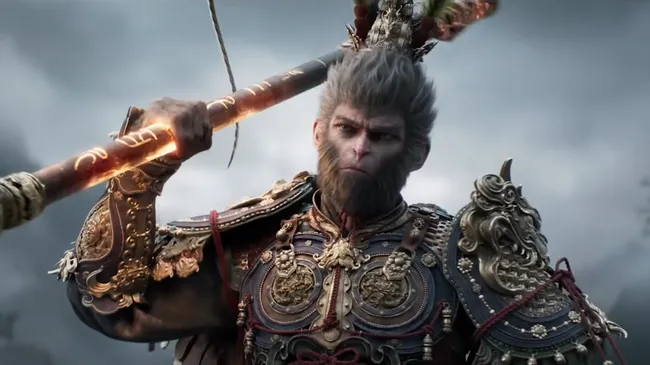It is a well-known cliché that anytime a new action game is unveiled and it excites people, people automatically think it is going to be similar to Souls. Earlier this year, it occurred with Armored Core 6 as well as Stellar Blade. Currently, Black Myth: Wukong is the victim. If you Google the game, you will come across a ton of articles, Reddit discussions, and forum posts speculating about whether or not Black Myth: Wukong is a Soulslike, along with follow-ups explaining that, well, no, it is not.
I would want to officially state that Wukong is not a Soulslike, dispelling the Black Myth once and for all. Nevertheless, it is a fantastic character-driven action game that, like many other excellent action games like Bayonetta, takes inspiration from Dark Souls.
What Makes a Soulslike?
Though the definition of “Soulslike” varies slightly (or sometimes dramatically), it usually refers to games that include a risk-reward component, such as challenging bosses, melee-focused combat, limited healing, and the loss of Souls, XP, or resources upon death. In an interview with Gamexta, Hidetaka Miyazaki, the designer of Gloomy Souls and Elden Ring, defined the genre as “those gloomy fantasy third-person action games with a higher concentration on melee fighting and sense of success.”
In my opinion, challenging boss battles, a leveling system that depends on eliminating foes (thus the necessity for them to respawn after each checkpoint), and a strong exploration component are what distinguish genuine Soulslike games. All of the FromSoftware games include intricate map layouts with reversible paths and shortcuts that connect to form one large maze.
Black Myth: While Wukong’s boss fights are undoubtedly difficult and it shares similarities with Soulslike games in terms of dodge roll and melee attack combat, as well as the use of stamina bars and limited health items, I believe it has more in common with boss rush games, such as No More Heroes. The level design in Black Myth: Wukong is relatively linear, leading our Destined hero from boss to boss in a nearly straight path, but the maps in Dark Souls are an elaborate puzzle box. This makes Black Myth: Wukong’s level design very different from any other world that FromSoftware has created.
We initially thought Black Myth: Wukong would be a Souls-like game “given the checkpoint system, the stamina bar that dictates your movements in battle, and the dodge-heavy fighting style,” as we wrote in our review, after spending a small amount of time with it during preview events. But as soon as we had access to the entire game, it was clear that Black Myth: Wukong was going in a different direction.
FromSoftware’s Everlasting Impact
Of fact, a lot of the work that FromSoftware has done in its present age has found its way into other games, but it does not mean that they are all Soulslikes. I refer to items such as the stamina meter, limited-use health item, and respawn points that reset every enemy. Many non-Soulslike games, such as Black Myth: Wukong, Stellar Blade, and FromSoftware’s own Sekiro (which is not a Soulslike game and I will fight you over this), now have a combination of any of these characteristics.
Because they alter the overall difficulty of a Dark Souls game, it used to be reasonable to argue that the stamina meter and limited-use health consumables, like the Estus Flask in Dark Souls, were essential components of the series. However, as they have become more and more popular, more games are incorporating these concepts into their action series. Stellar Blade does away with the stamina bar completely and instead uses a combat system akin to Black Myth: Wukong, as well as a checkpoint system inspired by Soulslike. On the other hand, no one would ever mistake The Legend of Zelda: Tears of the Kingdom for a Soulslike game despite having a stamina bar and a few extremely powerful foes.
It is now obvious that games that do not belong in the Soulslike subgenre use gameplay elements that were formerly exclusive to those titles. Furthermore, we have to acknowledge that, in the case of the action genre, we now inhabit a post-Souls universe where a game need not be Souls-like to contain certain FromSoftware-esque flourishes.
This is a crucial distinction since, surprisingly, not all fans of action games are fond of the Soulslike aesthetic. That is all well and good, but it would be a tragedy if those gamers were to lose out on titles like Black Myth: Wukong or even Sekiro (no, it is not Soulslike!) because of incorrectly categorizing games under an extremely narrow subgenre.
It is now obvious that games that do not belong in the Soulslike subgenre use gameplay elements that were formerly exclusive to those titles. Furthermore, we have to acknowledge that, in the case of the action genre, we now inhabit a post-Souls universe where a game need not be Souls-like to contain certain FromSoftware-esque flourishes.
Rather, we ought to seize the chance to examine titles such as Black Myth: Wukong and acknowledge the extent to which FromSoftware has transformed the action game genre overall—and, I believe, in a positive way. All the while acknowledging that not all excellent action games with difficult boss battles are inevitably seen as Soulslike, and that the industry has moved into a new reality. Thus, we can now enjoy games like Black Myth: Wukong even more—as our review makes clear—because of its unique mechanics and imaginative components, which do not take inspiration from the Soulslike genre.

